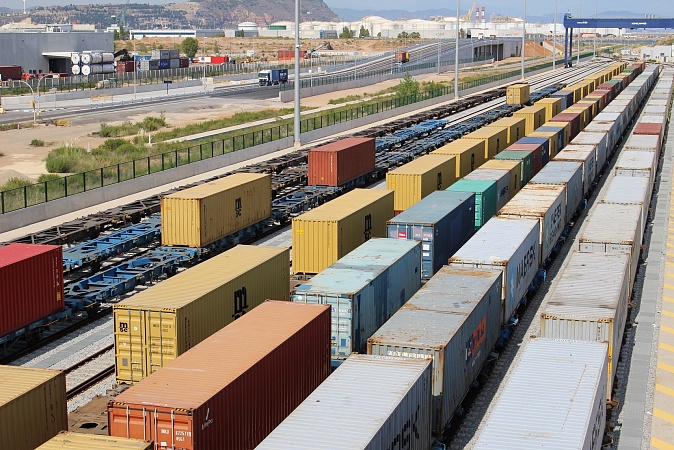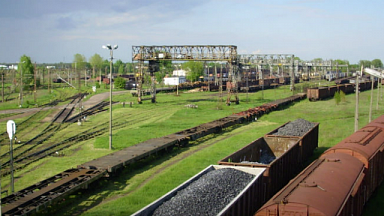Kuehne + Nagel announced that a road-to-rail programme in China with Japanese automobile manufacturer Honda involving the inbound-to-manufacturing transport shifting from road to rail had led to CO2 emissions being reduced by around 70% – approximately 16,000 tonnes – on East China-Wuhan routes.
It said the road-to-rail programme programme “increasingly relies on train transport on long haul routes, coupled with the use of regional hubs for improved supply chain performance and reduced carbon emissions”.
The logistics group said this was “a further step towards Kuehne + Nagel’s 2030 Net Zero Carbon targets”. Kuehne + Nagel first announced its Net Zero Carbon programme in 2019, “aiming to address CO2 reduction in transport and logistics services”. Since 2020, the company “has been CO2 neutral worldwide for all own, direct emissions”, and the group has been offering solutions to support customers in reducing their carbon footprint.
The gains in China with Honda have been achieved through KN Sincero, a joint venture dedicated to supply chain services for the automotive industry – through which Kuehne + Nagel “has been developing a strong footprint in China. In light of challenges around inbound-to-manufacturing transportation, KN Sincero developed an integrated solution for Honda to convert domestic long-haul trucking to rail, offering consolidations and value-added services including sorting, scanning, repackaging, GPS track & trace, as well as recyclable container management”, the company said.
“After six months, the supply chain reliability and efficiency improved significantly. With this road-to-rail model, approximately 16,000 fewer tonnes of CO2 will be emitted on a yearly base, a reduction of 70% compared to the trucking model.”
IKEA project for Maersk
Meanwhile, A.P. Moller-Maersk and IKEA Supply have been working together to lower carbon emissions, achieving similar cuts to those achieved by K+N in China. By shifting the transport mode from truck to rail between Barcelona port and Tarragona terminal, they said that IKEA Supply Chain Operations is cutting their greenhouse (GHG) from their long-haul transports in Spain by around 700 tonnes per year. Based on an annual volume forecasted of 10,000 containers, this shift reduces the IKEA Supply Chain Operations footprint on this transport flow by 75%.
Before the project started back in September 2020, the routing of freight from Barcelona port Terminal to Valls – the customer’s warehouse and distribution location – was done by truck. Now, the transport of the goods from the port to the Tarragona Terminal, a distance of 100 km, is done by rail, with the intermodal solution managed and operated by APM Railways. The last transport distance, from Tarragona Terminal to IKEA Valls Distribution Centre (30 kms), is still done by truck.
Elisabeth Munck af Rosenschöld, Sustainability Manager for IKEA Supply Chain Operations, commented: “IKEA’s goal is to become climate positive by 2030. For us in IKEA Supply Chain Operations this translates into reducing the emissions from every transport that we do by an average of 70%. We believe in a diversified portfolio of solutions to decarbonise transportation and there is no silver bullet. It is through innovative collaborations and close partnerships with our service providers, like Maersk, that we can make the needed, ambitious steps to reach our goal.”
Maersk´s tailored solution for IKEA Supply Chain Operations in Spain has already been replicated in Italy, switching approximately 2,000 containers (FFEs) from truck to rail for the transport flow from the APM Terminals terminal in Vado to the IKEA Distribution Centre in Piacenza.
Diego Perdones Montero, Managing Director for South West Europe & Maghreb Area at Maersk, commented: “Our innovation was based on thinking outside the box and actually venture ourselves into a multicarrier mindset instead of a Maersk container – carrier haulage – only. This is a true story of collaboration and integrator vision that puts customers in the core of what we do. This project has fortified our relationship with the customer, and we – Maersk Spain and APMR Railways – are now seen as a trustworthy partner for IKEA Supply AG locally and globally.”
To improve both operations as well as safety in Tarragona RW Terminal, A.P. Moller - Maersk and its local partner Transportes Portuarios are currently conducting some engineering and constructions works amounting to US$410.000.
Both IKEA Supply Chain Operations and A.P. Moller – Maersk “are committed to the Paris Agreement and to contribute to limiting the global temperature rise to 1.5°C above pre-industrial levels through their climate ambition and goals”, Maersk highlighted.





